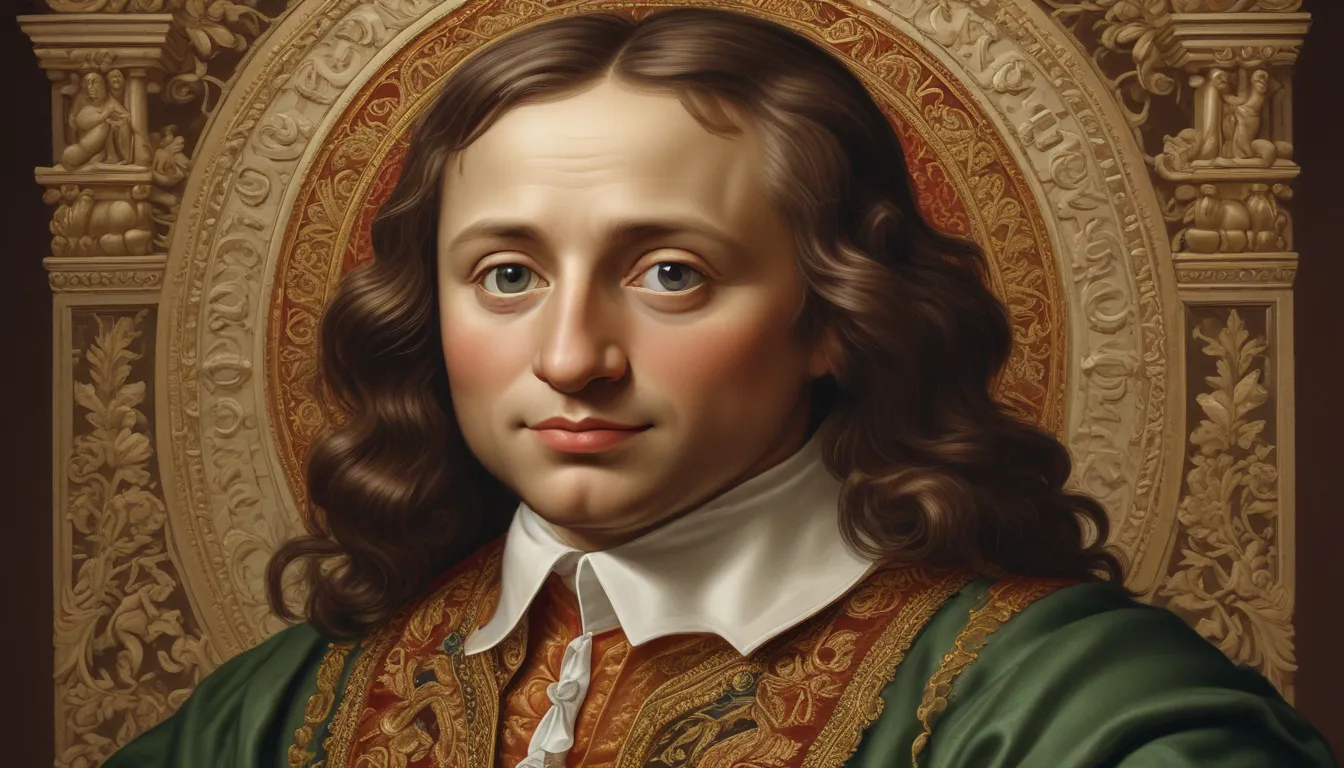The images in our articles may not match the content exactly. They are used to grab your attention, not to show the exact details in the text. The images complement the text but do not replace it.
If you have a passion for science and mathematics, then the name Blaise Pascal surely rings a bell. But beyond his well-known achievements, there are some mind-blowing facts about this genius that might surprise you. In this article, we will uncover the extraordinary life and accomplishments of Blaise Pascal, a prominent French mathematician, physicist, and philosopher. From his groundbreaking contributions to probability theory to his invention of the mechanical calculator, Pascal’s influence on the realms of science and mathematics is truly remarkable. Prepare to be dazzled by 10 mind-blowing facts about Blaise Pascal that will deepen your admiration for his brilliance.
The Multifaceted Genius of Blaise Pascal
Born on June 19, 1623, in Clermont-Ferrand, France, Blaise Pascal was a polymath of extraordinary talent. His expertise spanned across mathematics, physics, philosophy, and theology, making him a versatile thinker whose influence transcended various fields of knowledge.
Unraveling Pascal’s Triangle
Pascal’s Triangle, a mathematical marvel bearing his name, is a geometric arrangement of numbers with multifaceted applications in mathematics, probability theory, and algebra. The mesmerizing pattern within the triangle emerges from the simple act of adding numbers from the row above, resulting in an intricate web of integers.
Delving into Pascal’s Wager
In his renowned work “Pensées,” Blaise Pascal crafted a philosophical argument known as Pascal’s Wager. This compelling discourse posits that believing in God is a rational choice, as the potential benefits of faith outweigh the consequences of disbelief. Pascal’s Wager continues to provoke profound discussions among philosophers and theologians.
Unveiling Pascal’s Law
Pascal’s Law, also referred to as the principle of transmission of fluid-pressure, elucidates that an increase in pressure at any point in a confined fluid is uniformly propagated to all other regions of the fluid. This fundamental principle revolutionized the realm of fluid mechanics and finds practical applications in hydraulic systems.
Exploring Pascal’s Theorem
A critical result in projective geometry, Pascal’s Theorem asserts that when a hexagon is inscribed within a conic section, such as a circle or an ellipse, the three points where opposite sides intersect lie on a straight line. This theorem, crafted by Pascal, holds profound implications in geometric studies.
Innovations in Calculating: Pascal’s Calculating Machine
Blaise Pascal’s ingenuity gave birth to the mechanical calculator, also dubbed as Pascal’s Pascaline, marking one of the earliest devices capable of executing mathematical computations. This groundbreaking invention laid the groundwork for contemporary mechanical calculators and propelled the evolution of computing technologies.
Pioneering Contributions to Probability Theory
Collaborating with Pierre de Fermat, Pascal made seminal contributions to probability theory, laying the groundwork for combinatorial analysis and the theory of probability. These foundational principles have become indispensable tools in various domains, including statistics and decision-making processes.
A Profound Spiritual Journey: Pascal’s Religious Convictions
Embracing a deep religious faith, Blaise Pascal underwent a transformative spiritual encounter known as the “night of fire.” This transcendent experience shaped his subsequent works, delving into themes of theology and philosophy, exemplified in his influential manuscript “Pensées.”
Enduring Legacy of Blaise Pascal
Blaise Pascal’s remarkable contributions have cast a lasting impact upon a myriad of disciplines. His mathematical innovations, scientific breakthroughs, and philosophical musings have continued to inspire scholars, paving the way for a deeper understanding of the universe.
The Everlasting Influence of Blaise Pascal
Beyond his individual achievements, Blaise Pascal’s legacy echoes through groundbreaking concepts, theorems, and inventions that have reshaped the landscape of mathematics, physics, and philosophy. His enduring influence stands as a testament to his extraordinary intellect and timeless relevance.
Conclusion: A Testament to Genius
Blaise Pascal emerges as a towering figure whose boundless intellect has left an indelible mark on diverse fields of knowledge. From his transformative contributions in mathematics and physics to his contemplations on faith and reason, Pascal’s genius shines through. His invention of the mechanical calculator paved the way for the digital age, while his profound observations on human nature offer keen insights into the human condition. The legacy of Pascal, encompassing his concept of Pascal’s Wager and multidisciplinary approach, continues to captivate scholars and enthusiasts alike, cementing his status as one of history’s most captivating figures.
FAQs About Blaise Pascal
Q: What are Blaise Pascal’s major contributions to mathematics?
A: Blaise Pascal made significant strides in mathematics, notably in probability theory and the formulation of Pascal’s Triangle.
Q: Was Blaise Pascal solely recognized for his mathematical endeavors?
A: No, Pascal’s brilliance extended beyond mathematics to encompass groundbreaking contributions in physics, philosophy, and theology, shaping diverse fields of study.
Q: Why is Pascal’s mechanical calculator considered revolutionary?
A: Pascal’s mechanical calculator, known as the Pascaline, heralded a new era in computation, laying the groundwork for modern digital computers and influencing the trajectory of computing technology.
Q: What does Pascal’s Wager entail?
A: Pascal’s Wager, a philosophical construct by Blaise Pascal, posits that believing in God is a rational choice due to the potential rewards of faith surpassing the repercussions of disbelief.
Q: How did Pascal’s religious conversion impact his life and work?
A: Pascal’s profound religious conversion catalyzed his exploration of theological and philosophical themes, reflecting in his influential works on faith and reason.
As we navigate the legacy of Blaise Pascal, his intricate contributions and profound insights continue to resonate across the realms of science, mathematics, and philosophy. Let us delve deeper into the profound intellect and enduring influence of this polymathic genius.






